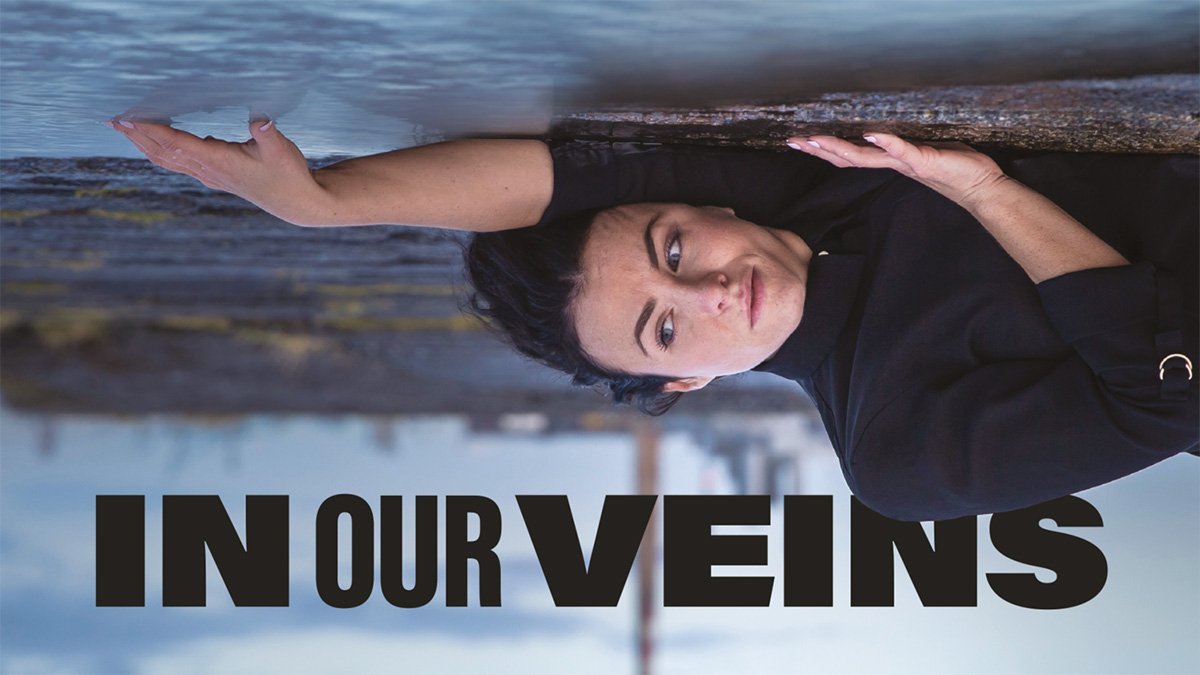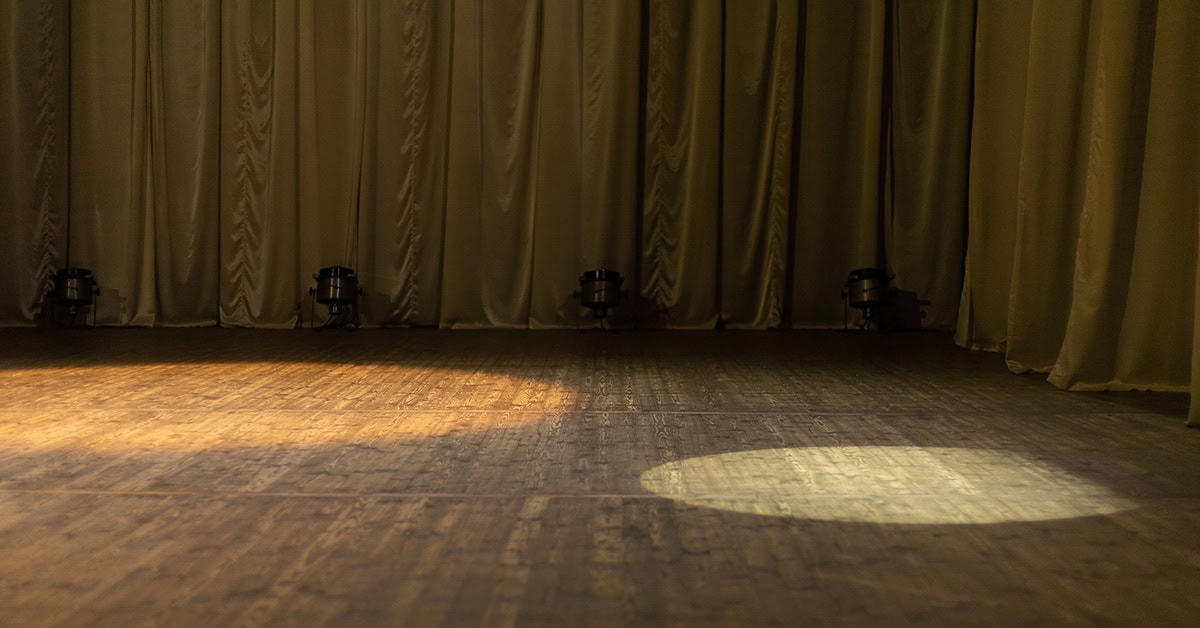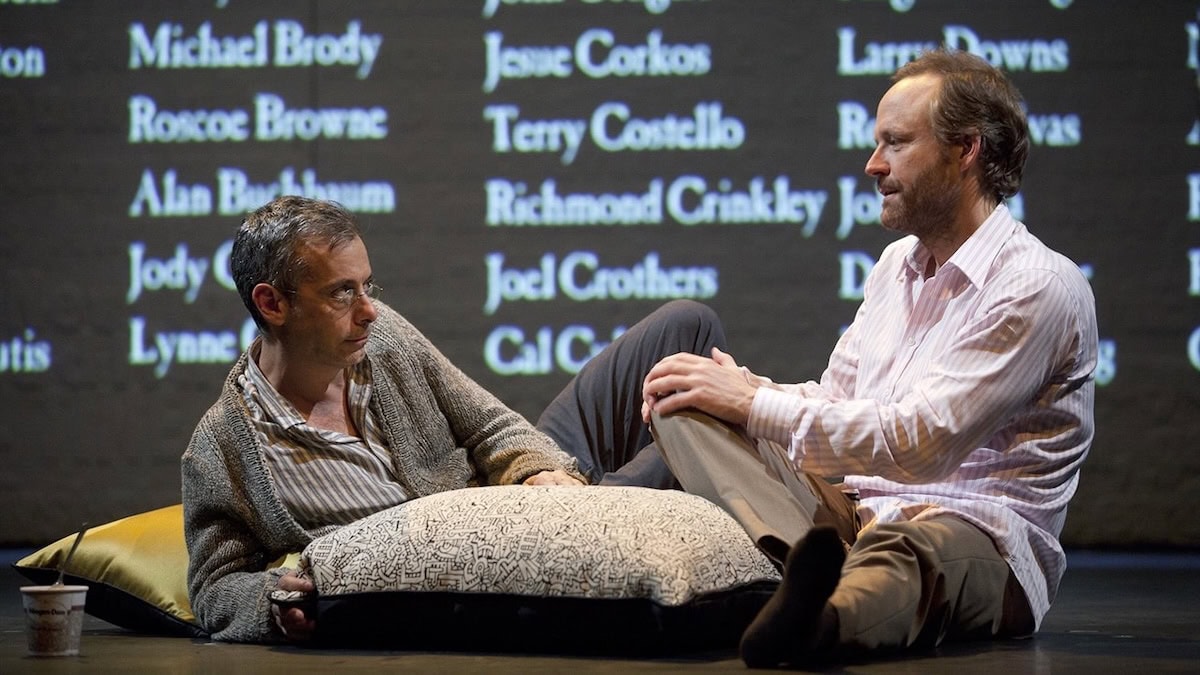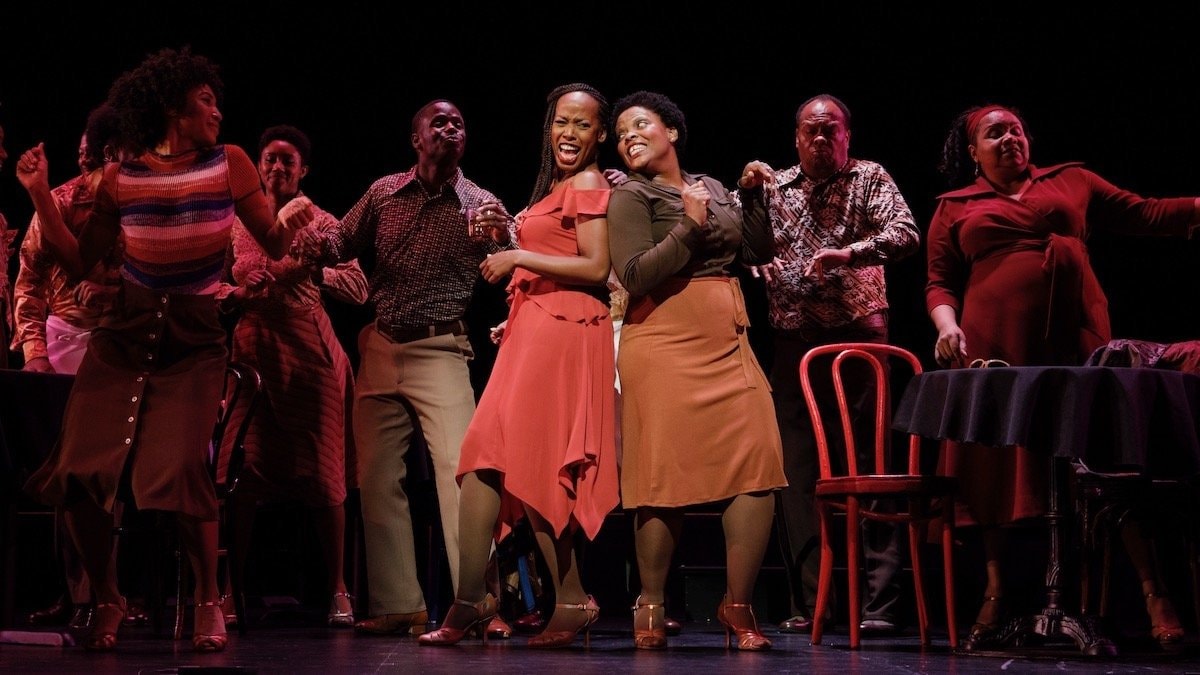
Dublin-based playwright Lee Coffey turned to the fascinating, challenging history of his hometown for his play In Our Veins, which premiered at the Abbey Theatre in 2019. He reflects on the inspiration and identity questions behind the play, how to balance history with artistic licence, and how training as an actor has influenced his creative process.
…
Can you tell us a bit about In Our Veins and what first inspired you to write the play?
In Our Veins tells the story of a docker family over the course of 100 years in Dublin City. We start at the funeral of Patrick in 2020, and as his family gather to celebrate his life, they realise that they have much to learn. His wife Esther then brings the family on a journey back to a world that no longer exists. A world of cutthroat madams, hardworking dockers and the poor that would give you the coat off their own back.
We meet Patrick’s mother Anne who was a poor unfortunate girl of The Monto in 1922. The story of how she became pregnant until deciding to give Patrick up to a loving family of the docks. We then jump forward to 1938 which is Patrick’s first day on the docks with his father, who gets involved in an argument and dies in his arms, then to 1955 where he first meets his wife Esther, falls in love and they start a family, then to 1971 through decasualisation and containerisation on the docks, then through his retirement, later life and eventual death which leads us back to the start of the play.
That is the play in a nutshell. I chose to write it that way because there truly is too much in each section for me to go through. Now, this is what inspired the piece.
For as long as I can remember, I’ve been fascinated with what came before. Why am I like this? Why are you like that? Where are you from? Where am I from? Where is this city from? Where’s that word from? So many questions and I have always been filled with them, much to the irritation of my classmates in school. We’re all a current form of what came before. Yes, we can rebel against or disagree but that changes not what has come before. That is a fact and we cannot fight that fact. For better or for worse, that is where we come from.
I am from Dublin City, from an inner city, working class family. My family coming from the Dublin tenements of the early 1900s. They were the worst slums in Europe with the highest infant mortality rate of any city in the British Empire. I remember speaking to my grandparents about their childhood. What their world was like. In doing so, I discovered all of this and the extreme poverty that they had endured. I also discovered that my grandfather, Denis Coffey was born in Waterford Street, which was a part of the notorious Monto district of Dublin – the biggest red light district in Europe.
These conversations took place many years before In Our Veins was even an idea but I knew that one day, I’d tell these stories and the stories of my heritage. So in a way, I guess my family inspired me to write the play, by just being who they are. In 2018, Dublin Port then approached me to write a play about the history of the docks as a part of their Port Perspectives initiative. A year of research followed and then the docks had me. I was inspired by each and every story I had read, and each and every person I had met. Their resolve, commitment and resilience in the face of the harshest conditions were overwhelmingly inspirational. From the conversations with the dockers I met and from my own family’s accounts, I became even more aware of how connected and symbiotic their relationships were. Living and moving together as one. The Monto was made of tenements, where many dockers lived, side by side with the brothels. These brothels also being a place in which sailors and soldiers from sea frequented.
They are collective parts of Dublin City’s history. Its streets and its people will always inspire me.
The story spans the course of the twentieth century in Dublin. Did you have to do much historical research to write the play? How did you balance this with creative licence?
I was researching the play for about a year, constantly reading, interviewing and studying anything I could find. The 1900s were an ever changing time for dockworkers with two World Wars, the introduction of unions, guaranteed work, then the decline and its eventual demise. With so much changing, there were specific dates/events that needed to be accurate for the story to work, so the research was imperative. For tales and stories from the docks I worked with The Dublin Dockworkers Preservation Society. They were there, they lived the story that I was trying to tell so they were my point of contact on everything. I needed to do that. This story was for them and if I wasn’t listening to them, why was I doing it? Writers should always listen to the truth and then we find ways to move our stories within that truth.
Which is enjoyable to balance with creative licence. I had the facts and now I could create characters that would have lived during these times. I could put stories together that may have come from five or six different sources but I make them one family’s journey, giving the family broader appeal and hopefully more people will relate to them. As any writer would, I would also have fun with dialogue and making up scenarios that may not have happened but fit perfectly, for example Patrick’s father dying in 1938 or Esther giving birth. They are universal and they colour and add flesh to the historical facts that surround them.
The play features a chorus-style “Voice”. How does the form of the “Voice” help tell the story that you wanted? How do you envisage it being performed?
I think the “Voice” character helps us create a bigger world with more colour, nuance and style. The scenes we’re painting have a lot of action in the background and I feel the “Voice” helps us create that world with a smaller cast. The world is full and we can hear that coming from the stage.
It should be performed as if they’re not waiting for a cue or prompt. They are real and should appear show, varying in pitch, tone and urgency. They should also be played with in rehearsals to find which voice sits on that particular moment. By changing how we play them, we can change the world for the audience.
Do you have any advice for theatremakers who may be interested in performing the play in the future?
Enjoy it. Play with it. This play doesn’t have one particular form. Use the script and find yours.
There is, of course, a significant tradition of Irish drama. Is that cultural heritage something that you’re engaging with in this piece, when so much of the play is about the history of the country and its citizens?
I never thought I was but after finishing it and then seeing it on stage, I suppose I am. I guess it ties in with what I said about ancestry and heritage. Why do I write like this? About this place and these people? Like it or not, that’s where we come from. I wasn’t trying to engage in suc
h a way but the setting, characters and themes have led me down that road, one I am very happy to be on.
Do you have a favourite play or playwright?
Mark O’Rowe is my favourite playwright. My favourite play would be Howie The Rookie. It was unlike anything I’d ever seen before and I approach my work with the aim of achieving that one day.
I’ve many more but we’d be here all day.
You originally trained as an actor. Do you feel that your experience as a performer has influenced your writing style or practice?
I think it has. From reading and being in so many plays, I try to write characters that I would like to play and that would be a gift for any actor. Also, as a reader I love fast-paced, snappy dialogue. In turn, that’s influenced me to write dialogue that zips, pops and moves across the page. Hopefully creating a beautiful barrage of language that keeps the reader/audience with us at all time.
I may not always achieve these things but it’s what I aim towards.
What are you working on next?
Two of my plays are currently being adapted for film. I’ve my first short film in production. I’ve a new play in development and we are hopefully bringing In Our Veins on tour. A lot of other things happening so there are exciting adventures ahead.
Buy the script for In Our Veins and register your interest to perform the play.
Script cover photo: Ste Murray

Recommended Shows for Drama Festivals

The Truth Behind… The Normal Heart

